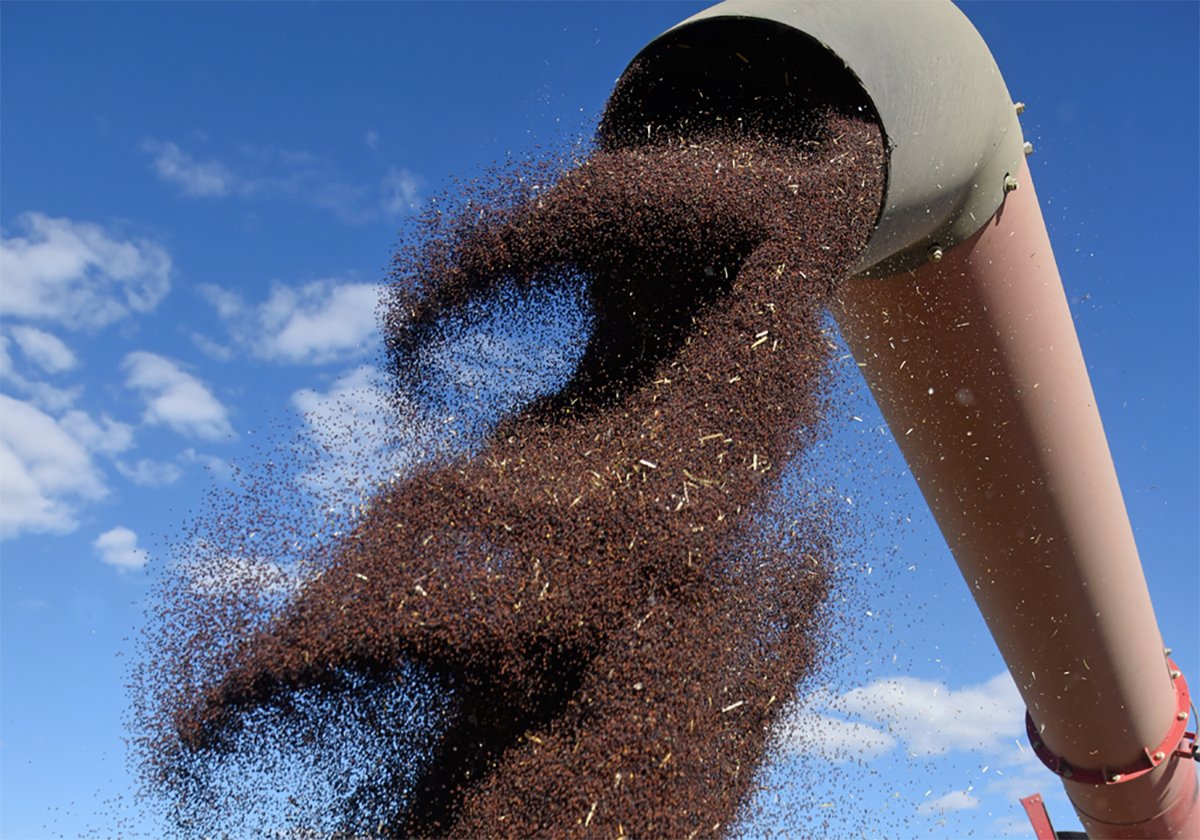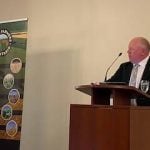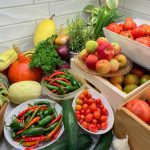Canada’s chief agriculture negotiator came as close as he felt he could last week to telling Canadian dairy farmers that they should not expect to win their key demand for no change in tariff protection if a world trade agreement is reached.
Steve Verheul told delegates to the annual Dairy Farmers of Canada convention on Feb. 7 that Canada’s attempt to preserve over-quota tariffs that offer some dairy products up to 300 percent tariff protection will be almost impossible to achieve if a deal is reached.
Despite dairy farmer opposition to any tariff cut, the rest of the World Trade Organization membership sees universal tariff cuts as part of a trade liberalizing deal.
Read Also

Ag minister says tariff situation with China is fragile, volatile
Agriculture ministers from across Canada said they heard canola producers’ concerns about tariffs but it seems unlikely they can do much about them.
Verheul said proposals from other countries range from a tariff cap of 100 percent to 75 percent. There also is pressure for a substantial increase in minimum import access guaranteed through tariff rate quotas.
“It is a tough challenge,” Verheul said several times as dairy delegates asked about possible outcomes and pointed to a November 2005 House of Commons unanimous vote that demanded there be no reduction in over-quota tariffs.
In a later interview, Verheul said the key point is that Canada has no allies among the other 148 WTO members on the issue of blocking over-quota tariff reductions.
“Every other member (country) has said they can live with some reduction in over-quota tariffs,” Verheul said. “On this we are isolated, alone.”
Later, Canadian Federation of Agriculture president Bob Friesen told DFC delegates that given the House of Commons motion and Canada’s policy, the new Conservative government has no excuse for giving up on over-quota protection or any other element of supply management protection.
“I don’t believe there is any excuse for our negotiators saying they can’t achieve something that is in their mandate,” he said.
Friesen’s view was that Canada’s position of offering expanded guaranteed minimum access while maintaining over-quota tariffs should attract support from other countries if Canadian negotiators sell it well.
Verheul said in the interview that there is no WTO appetite to maintain any tariff at its current level.
He also told dairy farmers that any WTO deal would hurt the industry by ending export subsidies and therefore ending dairy exports that have been deemed by the WTO to be supported by export subsidies. Because Canadian dairy exports are sold at prices lower than domestic levels, the WTO ruled those exports are effectively cross-subsidized by higher domestic revenues.
As well, Verheul warned that any final WTO deal will limit the government’s ability to support agriculture through so-called “amber spending” that has an impact on production or trade.
He said that will restrict the Canadian Dairy Commission’s ability to establish support prices for skim milk powder and butter because WTO calculations consider those supports to be worth more than $600 million annually in amber spending.
In a later interview, dairy farmer president Jacques Laforge noted that the dairy pricing system will be changed over the next year to make it more WTO-compliant.
And he said that while the end of export subsidies by 2013 would effectively end Canadian dairy exports, it also would end the ability of other countries to ship subsidized dairy substitute products such as milk protein concentrate to Canada.














